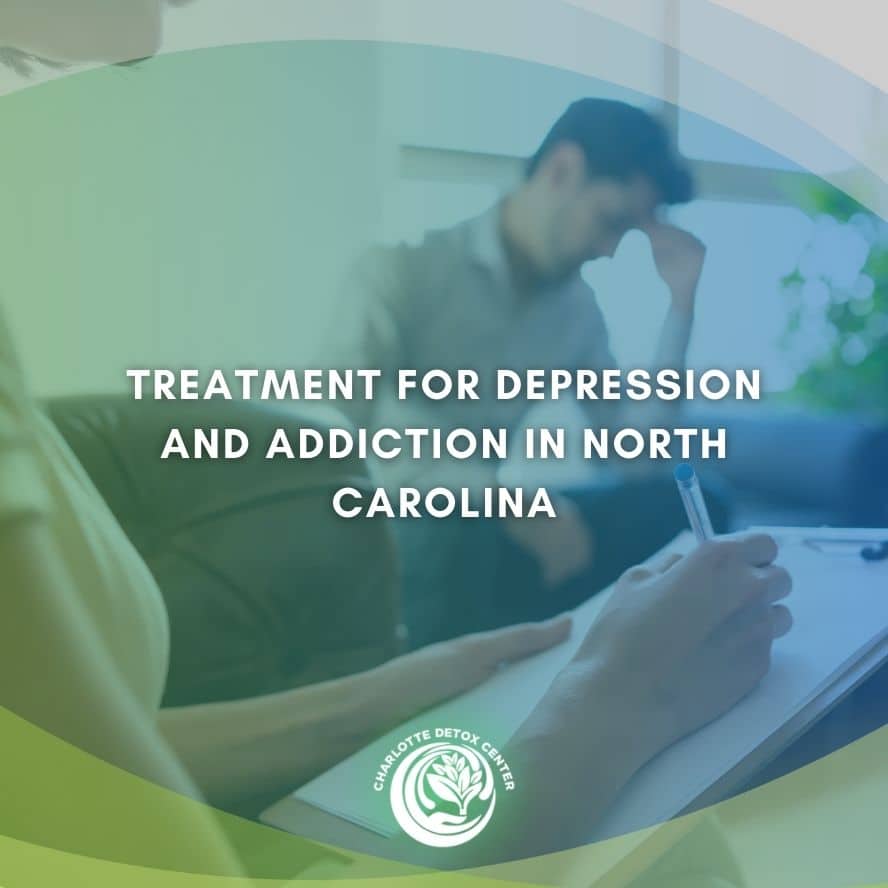Addiction is a complex condition that has many influencing factors. For example, you might develop substance abuse issues if you live in an environment where drug or alcohol abuse is common, experienced childhood trauma, or have a family history of addiction. That said, many people with substance use disorders also struggle with underlying mental health conditions.
One of the most common mental illnesses to co-occur with addiction is depression. Experiencing prolonged feelings of sadness, emptiness, or despair might make you more likely to abuse drugs. Over time, your substance misuse can turn into a full-blown addiction.
When you struggle with both depression and addiction, you will require treatment for both disorders at the same time. Thankfully, dual-diagnosis rehab programs offer treatment plans that include mental health treatment services and addiction recovery techniques. In other words, these treatment centers allow you to recover from your depression and addiction simultaneously, making long-term recovery more likely.
If you are looking for an addiction and depression treatment center in North Carolina, you’ve come to the right place. The Charlotte Detox Center is connected to Carolina Recovery Center, a highly-rated addiction treatment program that offers services for co-occurring disorders.
In this article, you will learn:
- What is the relationship between depression and addiction
- How treatment centers address addiction and depression at the same time
- How each step in co-occurring disorder treatment works
What is the Relationship Between Depression and Addiction?
Depression and addiction often come hand in hand. There are two main ways that these conditions co-occur. First, untreated depression can lead to addiction, as the symptoms might make you want to self-medicate with drugs or alcohol.
Addiction can also lead to depression. To explain, substances like alcohol, opioids, or benzodiazepines reduce activity in your central nervous system. Over time, you can develop symptoms of depression like lethargy, low mood, and social isolation.
Studies have found that 20 to 67% of people seeking alcoholism treatment also had a depressive disorder.[1]
Depression and addiction also tend to co-occur because of overlapping genetic factors. If your family has a history of both depression and addiction, you are more likely to deal with both of the conditions at once.[2]
How Does Treatment for Addiction and Depression Treatment Work in North Carolina?
Having co-occurring addiction and depression means you need to engage in treatment for both conditions at once. Without doing so, the untreated condition could cause a relapse in the other.[3] This is why treatment centers for addiction and depression address both disorders at the same time.
Assessment
The first step in dual diagnosis rehab for depression and addiction is an in-depth assessment. First, medical professionals will ask you questions about your physical health, family history, and history of substance abuse. Next, you will undergo mental health screenings to confirm that depression is the correct diagnosis.
Once these assessments are completed, the staff members can create an individualized treatment plan. The services and treatments you participate in during the program will be based on your specific needs.
Medical Detox
Before you begin depression treatment, you must detox and the physical aspects of your addiction must be addressed. When you are addicted to a substance, your brain and body rely on it to function properly. As a result, suddenly stopping the use of it will lead to withdrawal symptoms.
Medical detox programs can keep you stable and comfortable during withdrawal. Nurses will monitor your vital signs, you will be given medications to treat your withdrawal symptoms, and a mental health professional will be available to offer support at all times.
Individual and Group Therapy
Once you overcome withdrawal, it’s time to start addressing your depression and the root causes of your addiction. This is largely done through behavior therapy. You will engage in both individual therapy and group counseling, as both are necessary in treating depression and addiction.
For addiction, cognitive behavior therapy is often used to help you identify negative patterns of behavior and develop positive coping mechanisms.[4] Additionally, CBT helps you learn how to cope with the underlying factors that contributed to your substance abuse, like childhood trauma.
On the other hand, psychotherapy and traditional counseling are often helpful in managing depression. These types of therapy help you uncover factors that might be worsening your depression, teach you how to cope with depressive symptoms and help you reconnect with family members that can offer you support.
Medication Management
While depression can be managed through therapy alone, some people find that medication is helpful for long-term recovery. Thankfully, depression medication is non-addictive, which means it will not trigger your substance use disorder.
Common medications for depression include:[5]
- Selective serotonin reuptake inhibitors (SSRIs)
- Serotonin and norepinephrine reuptake inhibitors (SNRIs)
- Tricyclic antidepressants
- Atypical antidepressants
- Monoamine oxidase inhibitors (MAOIs)
Relapse Prevention and Aftercare
Lastly, relapse prevention is a vital step in the recovery from addiction and depression. You will identify personal triggers for substance abuse and develop the coping skills you need to overcome them.
Aftercare is often included in relapse prevention plans. These are services provided by your treatment center after you have completed your program.
Aftercare may include:
- Continued therapy
- Medication management
- Access to an alumni support group
- Referrals to outpatient programs or sober living housing
- Recommendations on local support groups
- Case management services like vocational assistance
Find Treatment for Depression and Addiction in North Carolina
If you or a loved one suffers from co-occurring depression and addiction, it’s time to seek professional help. Charlotte Detox Center can provide you with the medical detox services you need before transitioning into our top-rated dual diagnosis treatment program in North Carolina.
Contact us today to learn more about how the Charlotte Detox Center can help you recover from addiction and depression.
References:
- The National Library of Medicine (NLM): Mood Disorders and Substance Use Disorder: A Complex Comorbidity
- Science Direct: Reconsidering depression as a risk factor for substance use disorder: Insights from rodent models
- National Institutes of Health (NIH): Meta-analysis of depression and substance use among individuals with alcohol use disorders
- American Academy of Family Physicians (AAFP): Cognitive Therapy for Depression
- U.S. Food and Drug Administration (FDA): Depression Medicines


